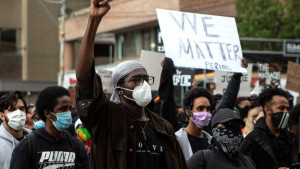The Canadian Blood Services screening process for donations requires donors to complete a questionnaire; then, every blood sample is tested. The questionnaire is designed to screen donors who have engaged in recent activity that put them at a higher risk of contracting a bloodborne pathogen to decrease the risk of infected blood being accepted.
According to Stanford Health Care, anal sex is the sexual activity with the highest chance of transmission if exposed to HIV. Also, according to Canadian Blood Services, men who have sex with male partners account for 50% of all new HIV infections. The current policy of Canadian Blood Services is to not accept donations of blood from men who have had sex with a male partner within the past three months because it is seen as a high-risk activity for contracting HIV. This is colloquially known as “the MSM Policy.”
Mr. Karas specifically claimed that he was being discriminated against under section 5 of the Canadian Human Rights Act, which prohibits denial of services on prohibited grounds. Sexual orientation is considered a prohibited ground under the Canadian Human Rights Act.
Mr. Karas’ case is still ongoing. Recently, the Canada Human Rights Commission ordered an inquiry by the Canadian Human Rights Tribunal to investigate Health Canada’s role in the processes related to the screening policy. Human rights commissions in Canada request inquiries where there is merit to a discrimination claim. After the inquiry is complete, the case will go to the tribunal to decide whether there is discrimination. Tanya Walker of Walker Law Professional Corporation described the inquiry as being like the police and the tribunal being like the court. Tanya’s City TV interview on discrimination while donating blood can be found here.
The Federal Court decided that the Commission’s decision to order an inquiry was reasonable and allowed the inquiry to proceed.
{https://twitter.com/TylerKBoyce/status/1520617420607696897}
Canadian Blood Services also recognizes that its donor health questions have disproportionately impacted racialized Canadians due to their geography-based policies. For example, the questionnaire asks potential donors if they were born in Mexico, Central America, or South America to “determine the risk of exposure to Chagas disease.” In addition, the decision of the Federal Court in Mr. Karas’ lawsuit suggests that racialized potential donors could bring a claim against Canadian Blood Services or Health Canada for discriminatory barriers to donating blood.
Since Mr. Karas started his challenge of the MSM policy, Canadian Blood Services have modified its questionnaire criteria. The new measures, effective on September 30, 2022, will ask all donors about anal sex with new or recent partners, regardless of sexual orientation.
It means everyone will be asked whether they have recently engaged in anal sex in the context of new or multiple sexual partners within the last few months. If they have, they would not be able to donate until they had gone three months without engaging in that activity.
It is unclear whether the new policy will be upheld under the Canadian Human Rights Act. While the questionnaire no longer refers specifically to men who have sex with other men, the gay community will be unequally affected by the requirement that the donor not have had anal sex with a partner for the previous three months. This could still present an unequal, discriminatory barrier for gay men wishing to donate blood. Canadian Blood Services and Health Canada could face challenges from racialized groups, the gay community, and possibly others in the future for their possible discriminatory screening policies.










